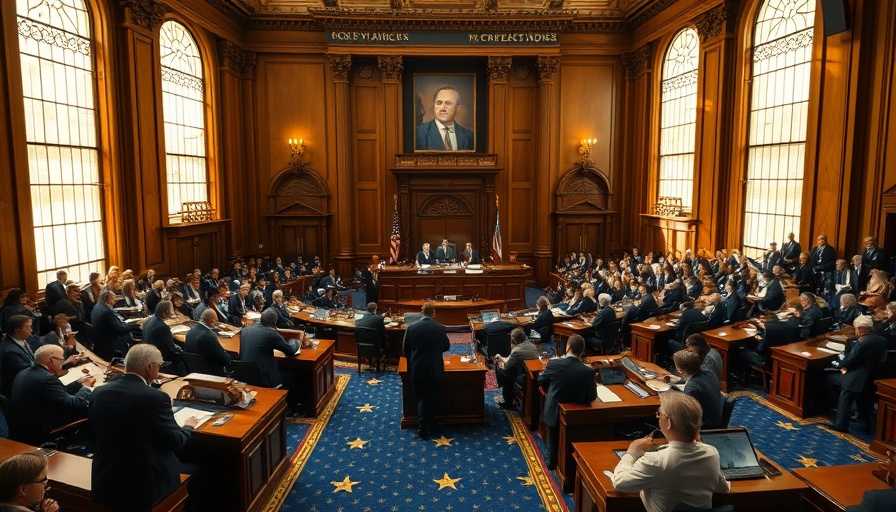
Budgetary Challenges for Economic Growth in Indianapolis
As Indianapolis prepares for its proposed $1.7 billion budget for 2026, a framework that guides the city's economic growth and public service funding, challenges loom large. Mayor Joe Hogsett is grappling with state-level cuts that are likely to impede essential investments, particularly in infrastructure and public services.
Understanding the Impact of State-Level Cuts
The recent state budget cuts will directly affect the allocation of funds available for city projects, forcing Mayor Hogsett to revisit strategic allocations. For entrepreneurs and local business owners, this means potential delays in infrastructure improvements and public services, which are pivotal for thriving enterprises. As funding shrinks, the city may struggle to maintain existing services, impacting local economies and employment.
Union Contracts Shape Budget Constraints
In addition to external cuts, city financial strategies are further complicated by existing union contracts that promise wages and benefits to city workers. This results in a tightened budget framework whereby any additional funding promised by the state or through tax revenues may be consumed to meet these contracts. It raises the question for skilled trades workers and job seekers: how will these financial constraints affect job security and the ability to attract new talent to the city?
The Call for Sustainable Budget Strategies
It’s crucial for city leaders and stakeholders to consider sustainable fiscal practices that could alleviate the pressure from state cuts. Enhancing revenue-generating initiatives and exploring public-private partnerships might offer solutions. Entrepreneurs can also get involved by advocating for policies that promote local investment and business growth, emphasizing the need for a diversified economic foundation.
Action Steps for Local Businesses
In light of these challenges, it’s essential for local entrepreneurs and small business owners to stay engaged in the budgetary process. Attending public meetings and voicing concerns can drive home the importance of smart budgeting that accounts for local growth. Additionally, businesses should prepare for potential impacts on their operations and workforce and think proactively about adjustments.
Conclusion: Why Participation is Key
For Indianapolis to thrive, all stakeholders, including entrepreneurs, job seekers, and skilled workers, need to be part of the conversation. Engaging with local government decisions can ensure that economic growth remains a focus, despite budget constraints. Your voice matters—get involved, advocate for local interests, and help shape a prosperous future for Indianapolis.
 Add Row
Add Row  Add
Add 




Write A Comment